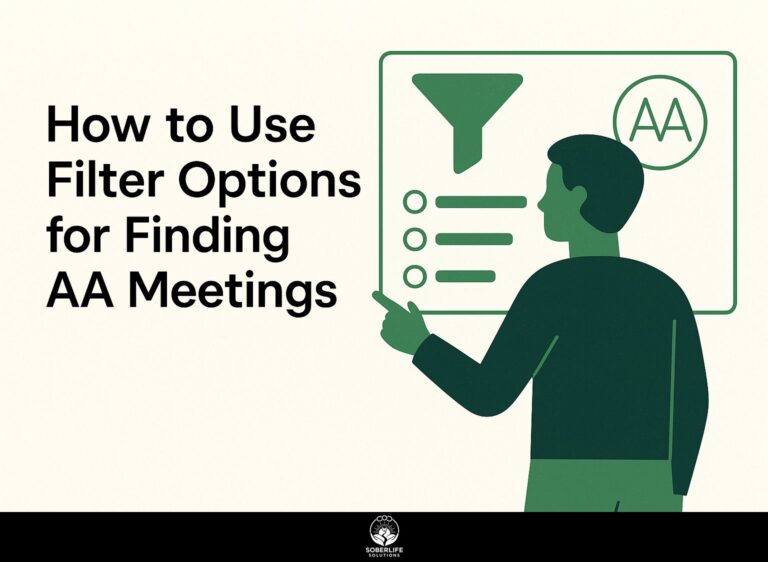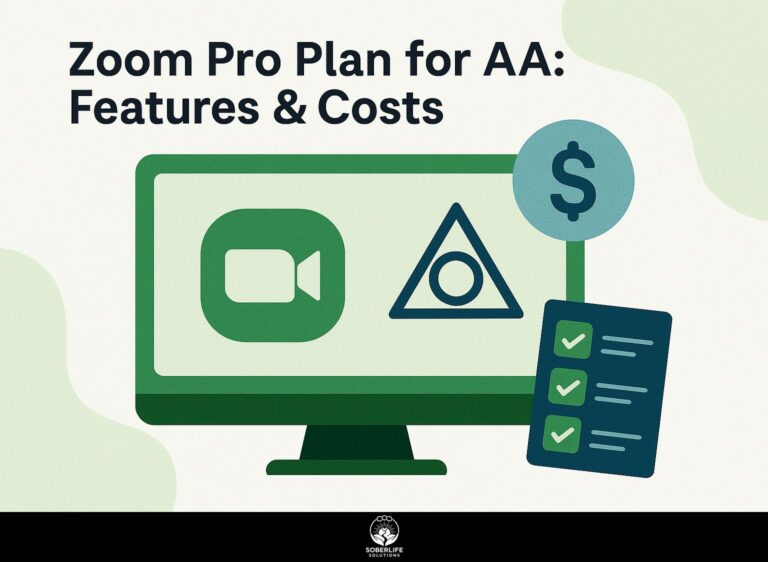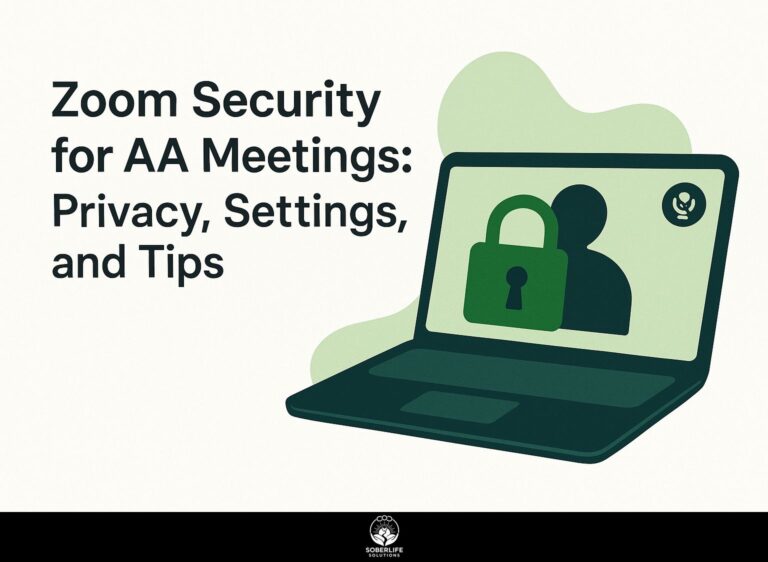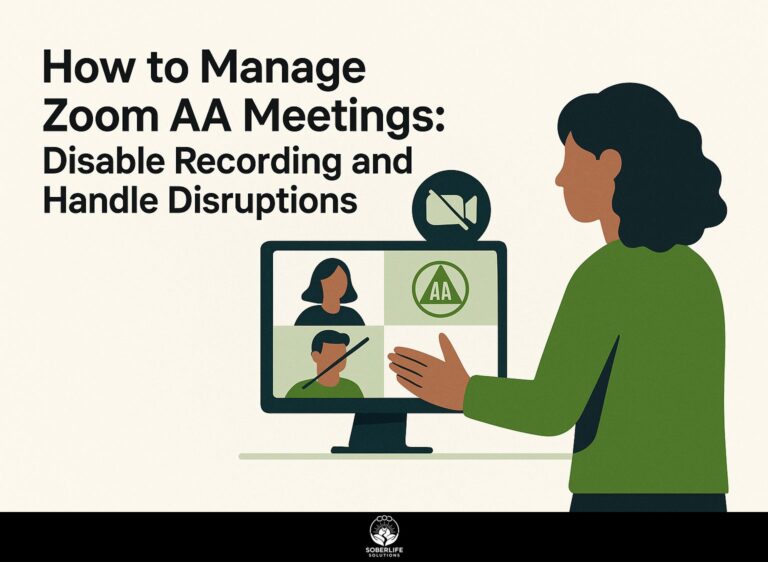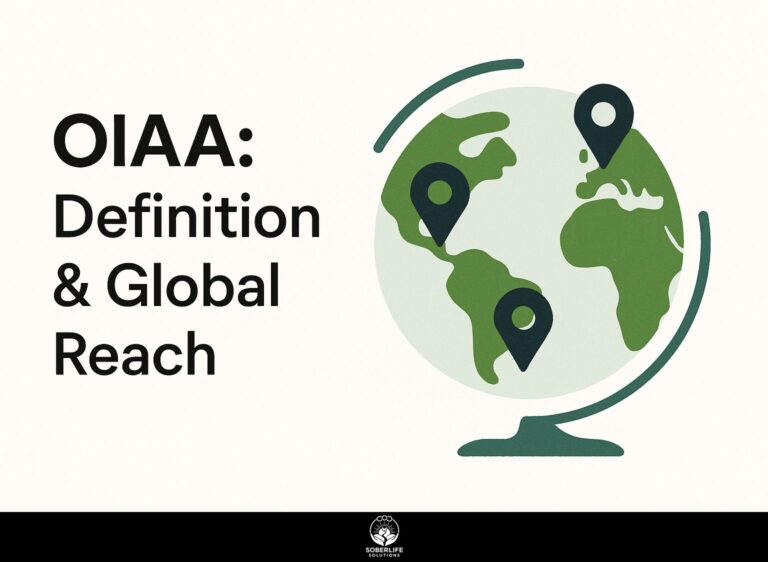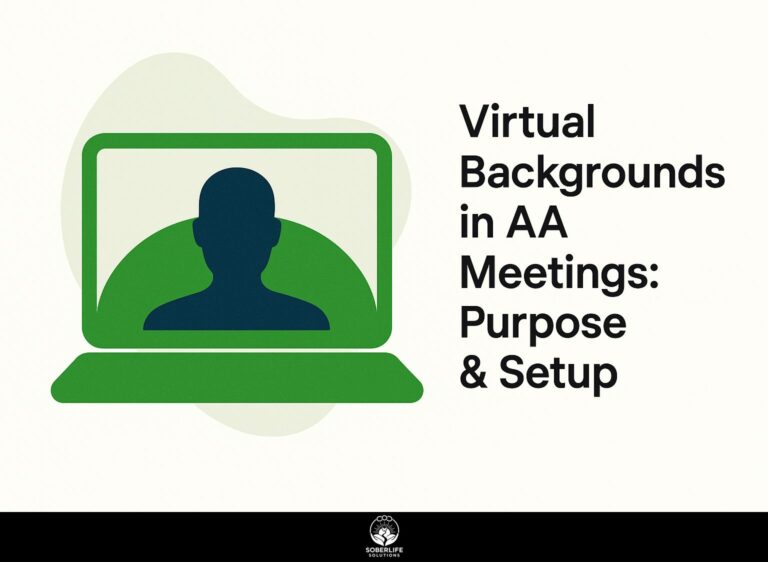Meeting Guide Privacy Policy: Key Points
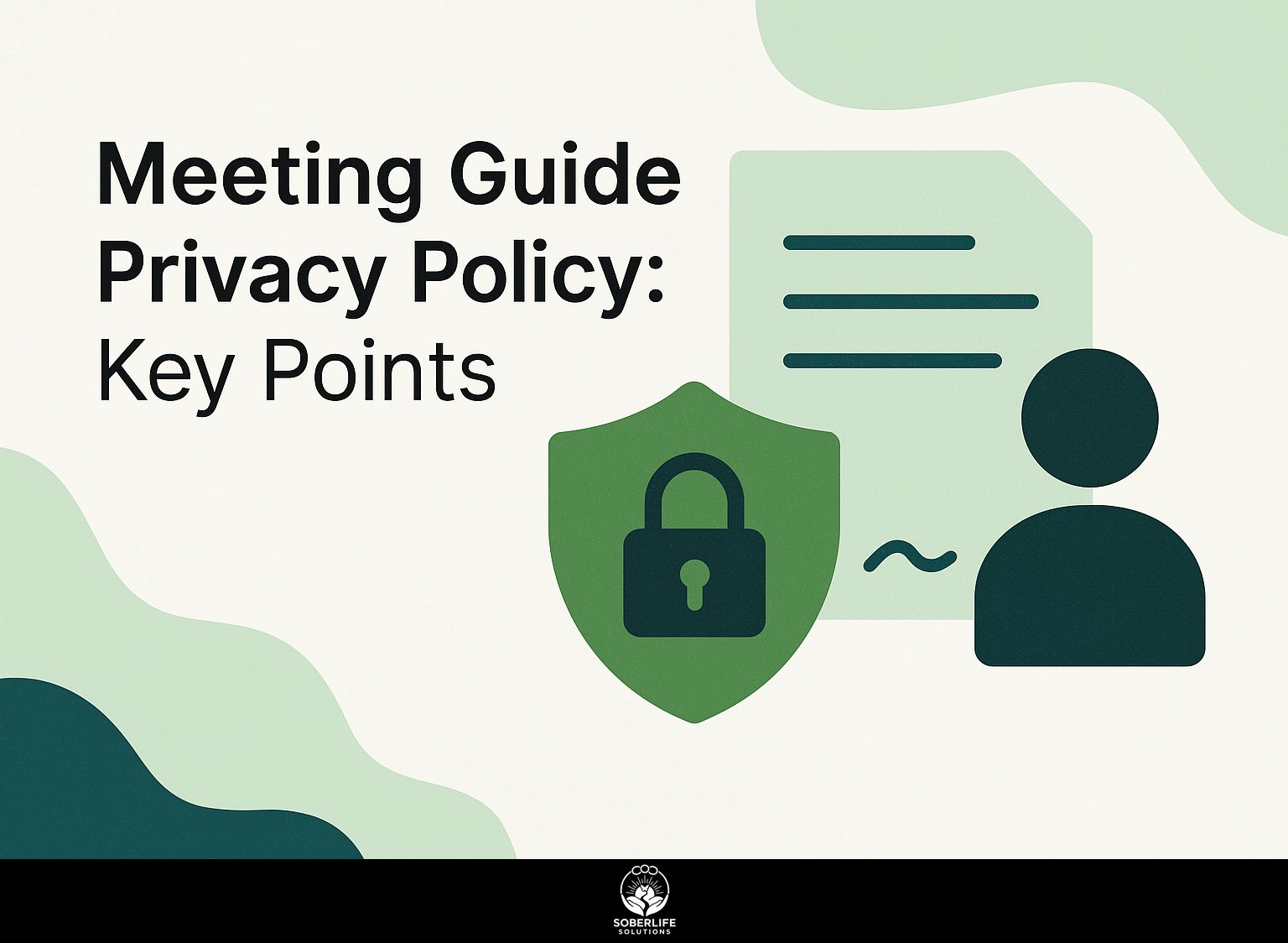
It’s important for members of Alcoholics Anonymous (A.A.W.S.) who care about their personal information to know the Meeting Guide privacy policy. This guide explains important parts of gathering data, like sharing your location and how Google improves user experience. By looking at these main points, you’ll learn how your data is managed, what your rights are, and the steps taken to keep your privacy secure, making sure everyone is safe.
Key Takeaways:
Types of Data Collected
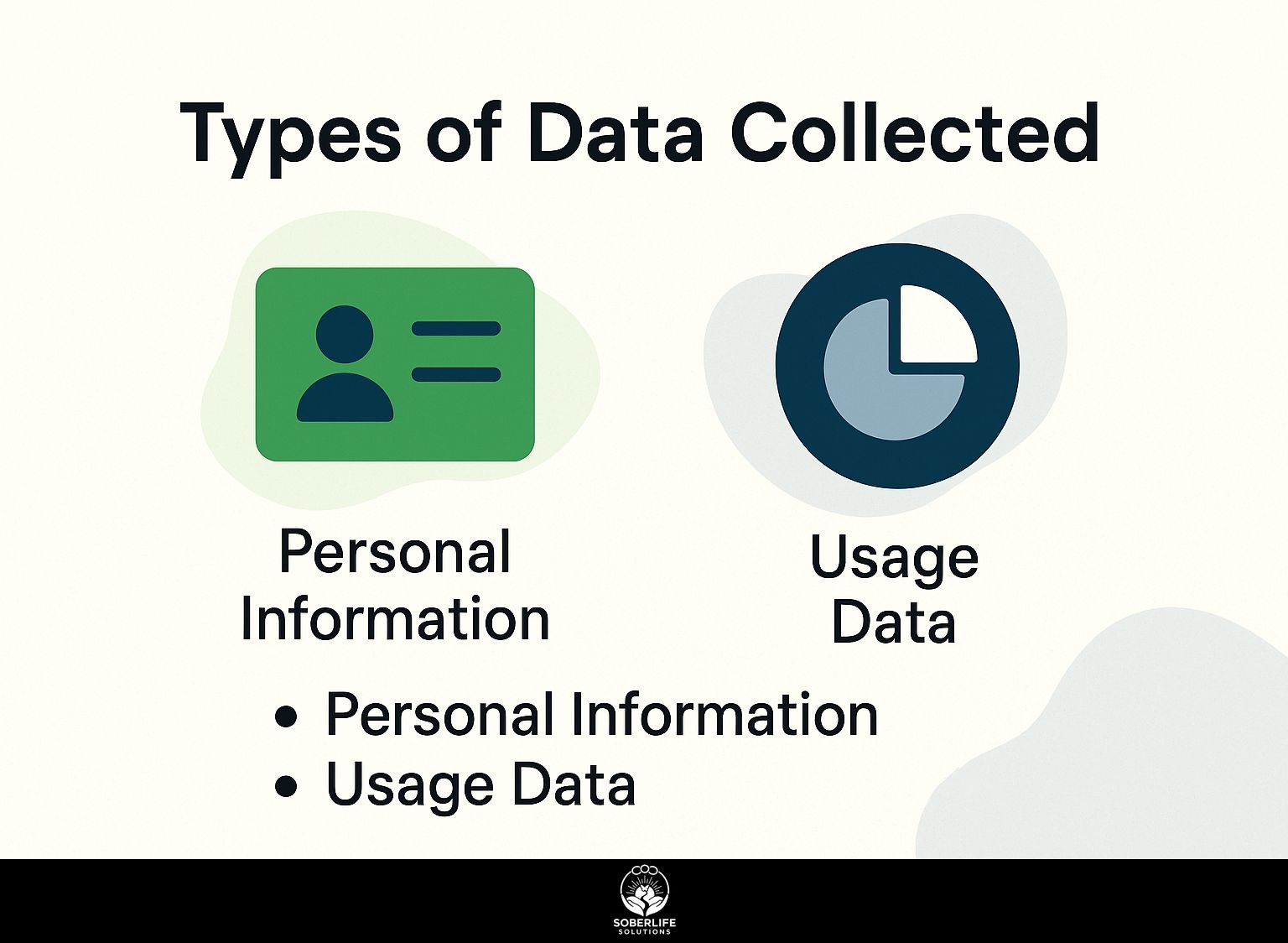
The Meeting Guide gathers different kinds of data to improve user experience and follow privacy rules, maintaining clear practices. Recent analysis from Forbes suggests that understanding U.S. data privacy protection laws is crucial for ensuring these privacy standards are met.
Personal Information
Personal information such as names, email addresses, and location data is directly collected through user interactions with the app, essential for personalization and support.
This information allows us to tailor user experiences, such as sending specific notifications and recommendations.
For instance, by looking at location information, the app can recommend nearby events or services, helping the user feel more involved.
It’s important to know about data privacy laws such as GDPR, which allow users to see and remove their information. Users can handle their data in the app settings, giving them power over what is shared and how it is used.
Usage Data
Information on how users interact with the app and their locations is collected to study user habits and improve how the app works.
This data is collected through various tracking technologies, such as Google Analytics and Firebase, which enable developers to monitor app usage patterns.
Key metrics include session duration, user retention rates, and feature usage frequency. For example, if users often use a certain feature but stop quickly, this suggests there might be a usability problem.
Reviewing this data helps developers make smart choices, like streamlining app menus for users or upgrading features, which makes the app simpler to use and boosts its performance. These improvements are often guided by comprehensive tools such as Google Analytics, which provides developers with invaluable insights into user behavior.
Purpose of Data Collection
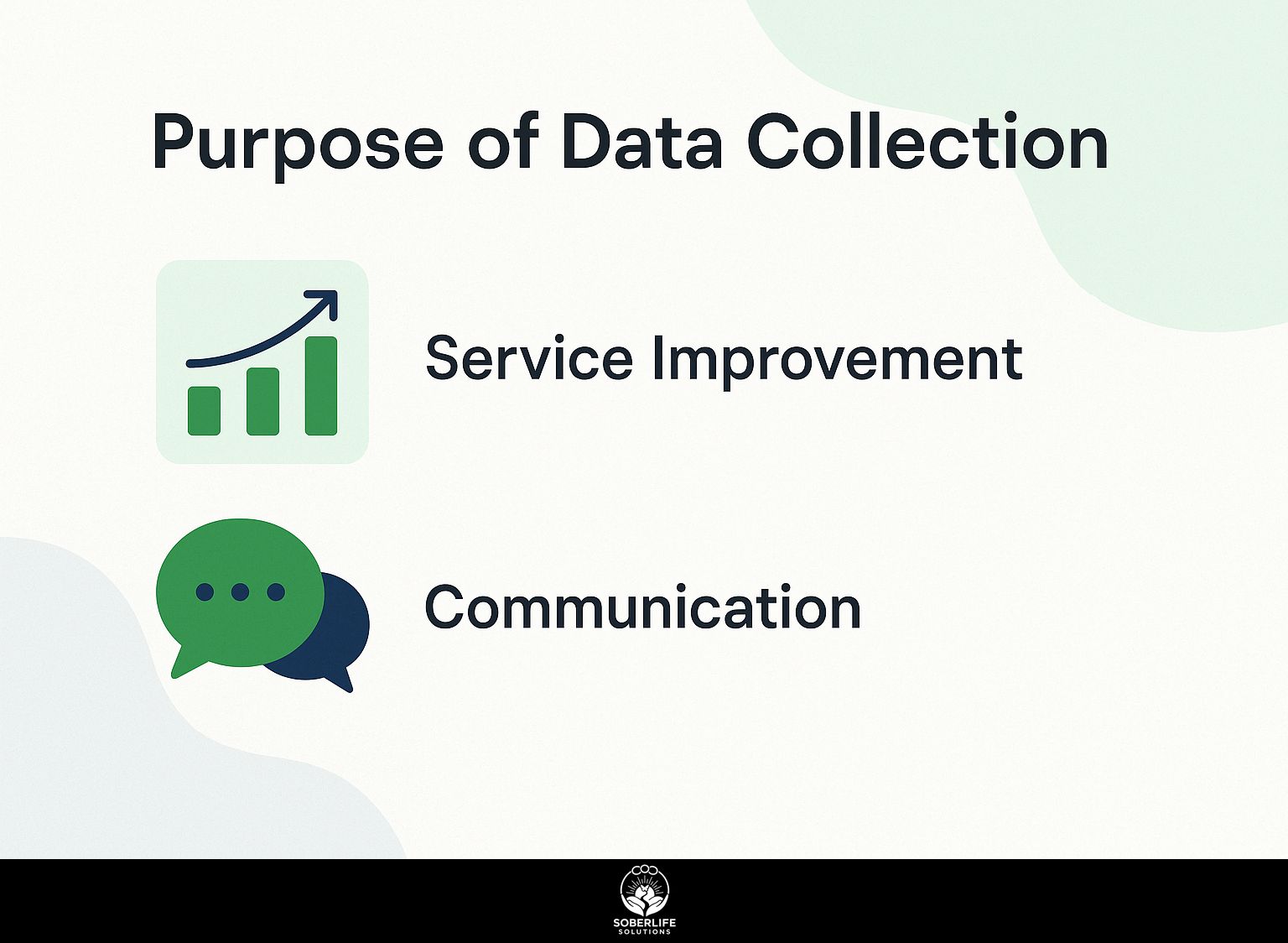
The main reasons for collecting data are to make services better and to inform users about Alcoholics Anonymous meetings and resources.
Service Improvement
The information we gather helps us make our services better and keeps meeting details current, giving you personalized experiences.
For instance, by analyzing participant feedback through surveys, organizations can identify common preferences regarding meeting times and formats.
SurveyMonkey and Google Forms can be used to collect data, allowing easy assessment and adjustments.
Creating a way to track attendance and responses can reveal patterns that help make meetings better. Using this information, companies can improve how meetings are run, which may result in participants being 20% happier with the meetings.
Communication
Effective communication with users about new features and updates depends a lot on gathered data to make sure the information is relevant.
By analyzing user engagement metrics, you can tailor communication strategies effectively. For instance, if your data reveals that newsletters yield high open rates, focus on this method to announce new features.
Divide your audience based on their past interactions-send emails customized for people who frequently use specific features.
Tools like Mailchimp or HubSpot can manage this job, allowing you to make targeted campaigns that reach different user groups, ensuring your updates are both valued and easy to understand.
Data Sharing and Disclosure
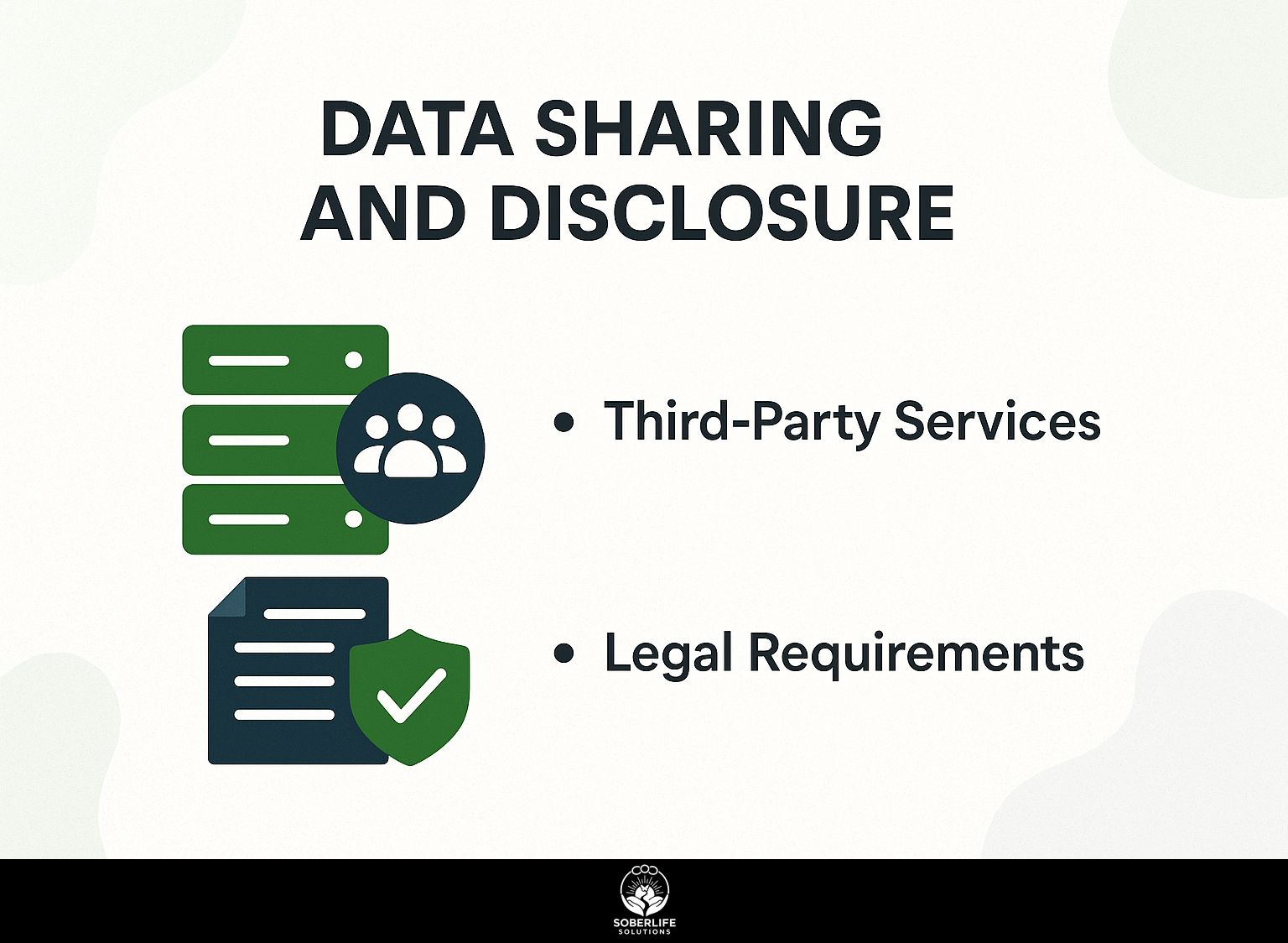
The Meeting Guide outlines clear rules for handling and disclosing information, ensuring compliance with legal standards and safeguarding user privacy.
Related insight: These guidelines are especially pertinent for digital environments such as Virtual Peer Support: Digital Platforms and Apps, where data integrity and user confidentiality are crucial.
Third-Party Services
Data may be shared with third-party services for analytics and functionality improvements, strictly following privacy regulations to protect user data.
For example, tools like Google Analytics help website owners monitor how visitors interact with their sites and make improvements.
When setting up Google Analytics, make sure to allow data anonymization to safeguard personal identities. Always inform users through a privacy policy detailing how their data is used and shared.
Under regulations like GDPR, acquiring explicit consent before data processing is mandatory. This practice builds trust and protects your business from possible legal problems.
Legal Requirements
Compliance with legal requirements such as GDPR and CCPA is central to the Meeting Guide’s data handling practices, ensuring user rights are respected.
Key user rights include the right to access personal data stored by organizations, allowing individuals to obtain clear information on what data is held and for what purpose.
Users also have the right to correct inaccuracies, ensuring their data remains up-to-date, as well as the right to delete personal data, often referred to as the ‘right to be forgotten.’
Organizations must put processes in place to facilitate these rights, using tools like data management platforms to track user requests and maintain compliance. The complexities of these compliance measures are discussed in detail by the American Marketing Association, which highlights the differences and similarities between GDPR and CCPA in its article GDPR v. CCPA: What You Need to Know.
User Rights and Choices
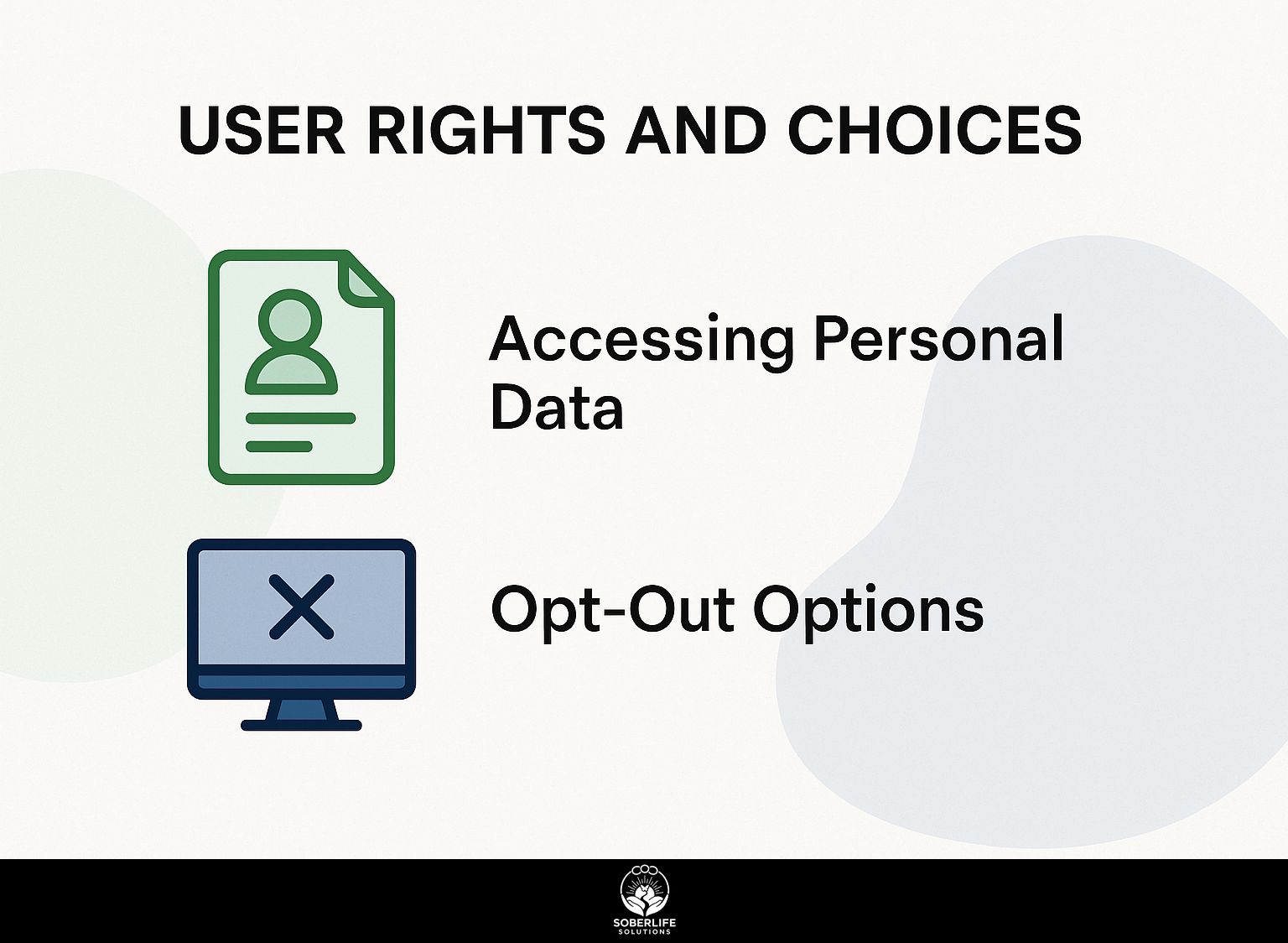
People using the Meeting Guide have certain rights over their personal information, allowing them to decide how their details are handled and shared. For those interested in learning more, our Privacy Policy offers a comprehensive look into the measures we take to protect your data.
Accessing Personal Data
Users can request access to their personal data, ensuring transparency and accountability in data processing activities.
To request access, users typically need to contact the organization’s data protection officer or use a designated online portal.
Companies are required to respond within 30 days under GDPR, providing detailed information on what data is held and how it is processed.
For instance, a user might submit a simple request via email, specifying their full name and email associated with the account. This encourages compliance and builds trust because users can directly check how their information is managed.
Opt-Out Options
The Meeting Guide offers users multiple opt-out options to manage their data sharing preferences effectively.
Users can unsubscribe from email communications by clicking the ‘unsubscribe’ link at the bottom of any message.
Within the account settings, users have the option to adjust their data sharing preferences. For example, they can choose not to share information with third parties or limit access to specific data points, such as contact details.
This process is simple and usually takes just a few minutes, allowing users to manage their privacy settings and customize their experience.
Data Security Measures
Strong data security measures are put in place to protect user information from breaches and unauthorized access, following privacy regulations.
Key measures include encryption, which encodes data during transmission to prevent unauthorized access, and two-factor authentication (2FA), requiring users to verify their identity through a second device or application.
Frequent security checks find weaknesses, and collecting only essential data helps protect sensitive information.
User education about phishing and other security threats builds awareness and trust. By using these methods, organizations protect user data and create a safe environment that follows rules like GDPR and CCPA.
Changes to the Privacy Policy
Any updates to the privacy policy are shared quickly with users, ensuring clarity and meeting legal requirements.
To let users know about updates, we use different ways.
- First, notifications are sent via email to all registered users detailing the changes and their implications.
- We post updates prominently on our website, providing easy access to the revised policy. Users are encouraged to review these updates regularly.
We provide a summary of important changes on our blog or in newsletters. This helps them grasp the main points of the policy without reading the whole document.
Contact Information
If you have questions or issues about the privacy policy, please contact the Meeting Guide support team for help.
You can contact them via email at [email protected] or call 1-800-555-0199. They are available from 9 AM to 5 PM EST, Monday to Friday.
When contacting us, please provide information about your question for a fast reply. Common questions often relate to data handling practices and user rights under applicable laws.
Feel free to ask if you have any questions about policies that could impact your experience, as the team is ready to help you.
Frequently Asked Questions
What is the Meeting Guide Privacy Policy?
The Meeting Guide Privacy Policy is a document that outlines the key points and guidelines for how your personal information will be collected, used, and protected when using the Meeting Guide app.
Why is the Meeting Guide Privacy Policy important?
The Meeting Guide Privacy Policy is important because it keeps your personal information safe and respects your privacy when you use the app.
What personal information is collected by the Meeting Guide app?
The Meeting Guide app only collects limited personal information that is necessary for providing the services of the app. This may include your name, email address, and location data if you choose to share it.
How is my personal information used by the Meeting Guide app?
Your personal information helps make the Meeting Guide app suit your needs and offer you meetings that might interest you. It may also be used for communication purposes, such as sending you updates or notifications about the app.
Will my personal information be shared with third parties?
The Meeting Guide app will not share your personal information with third parties without your consent. Your personal information might be given to companies that help run and make the app better.
How can I update or delete my personal information on the Meeting Guide app?
You can update or delete your personal information on the Meeting Guide app by accessing your account settings. If you have any worries or questions about your personal data, you can contact the app’s support team for help.

